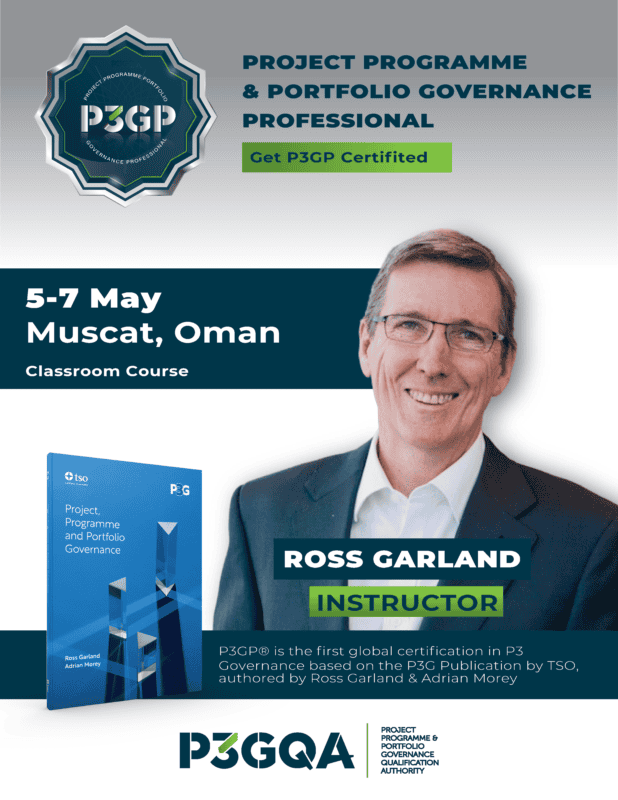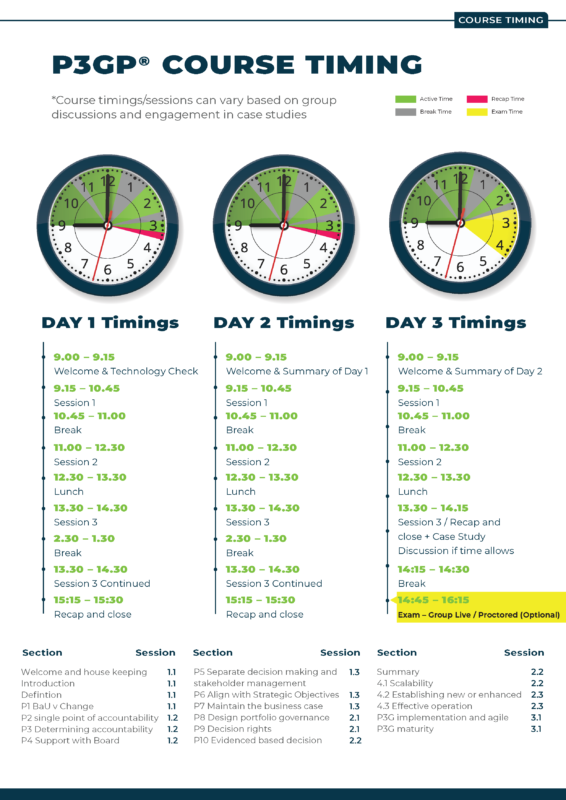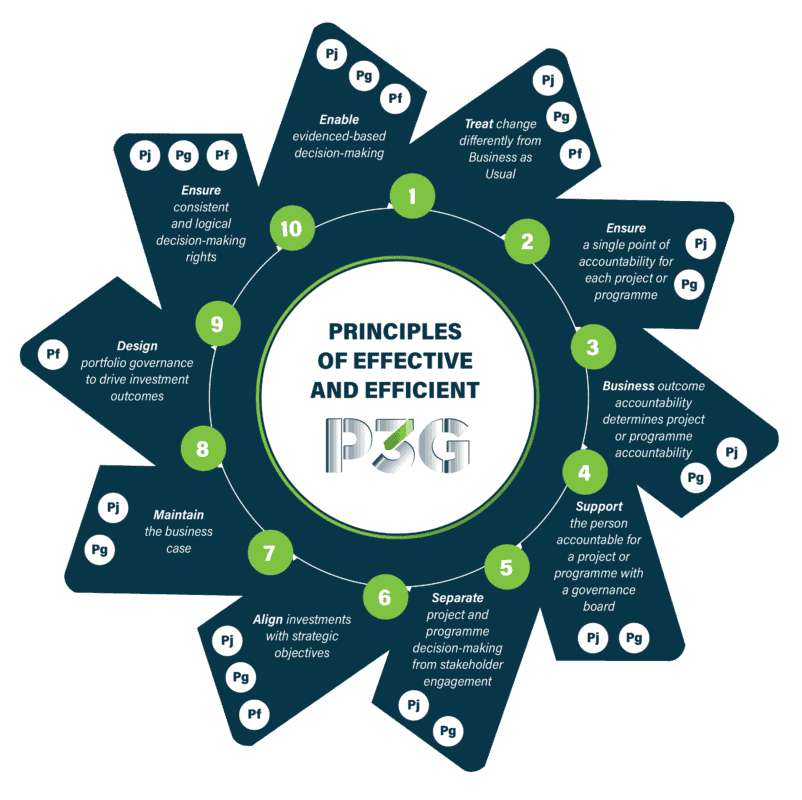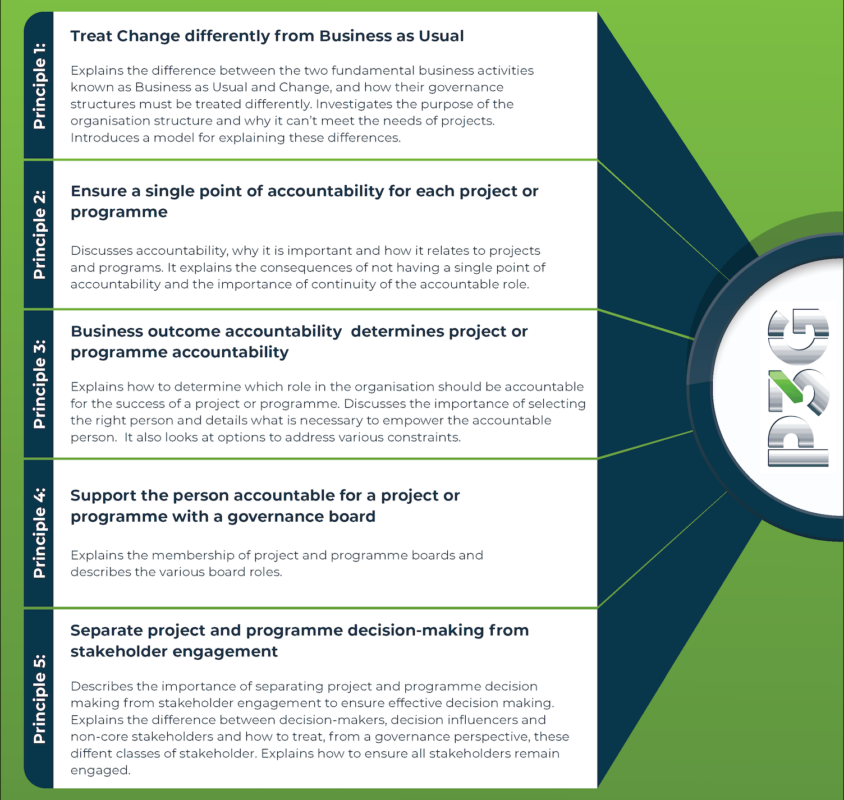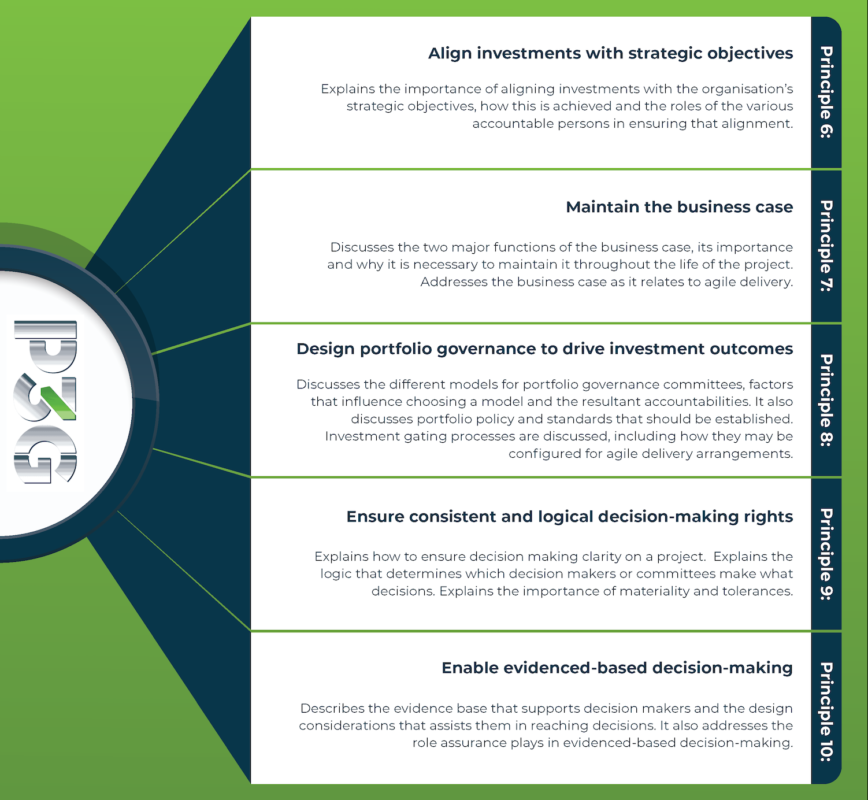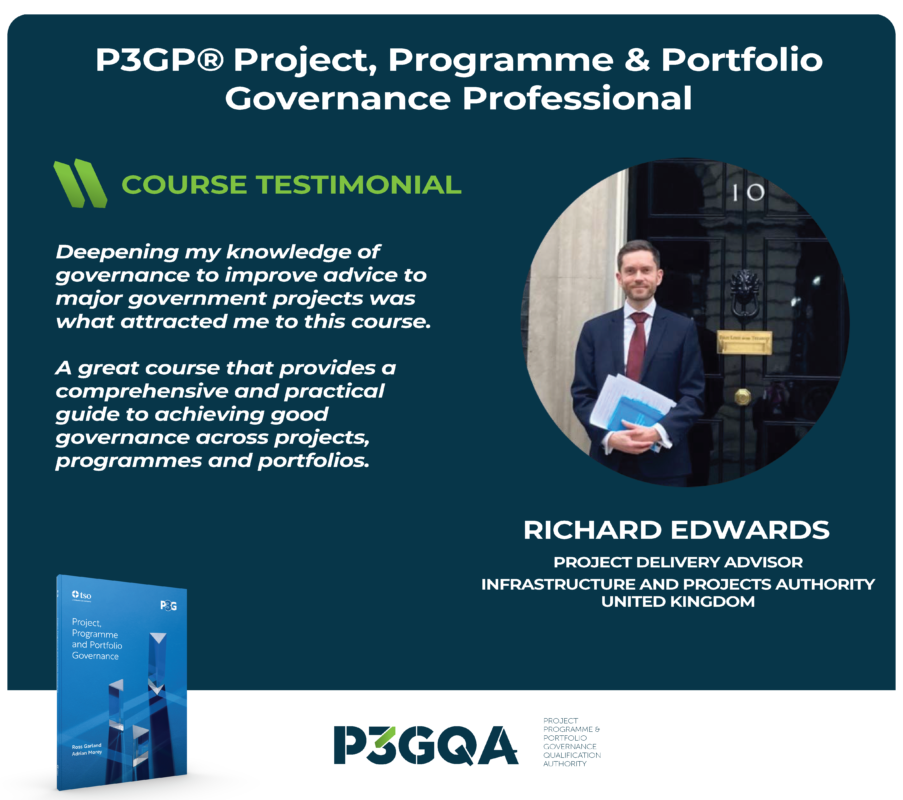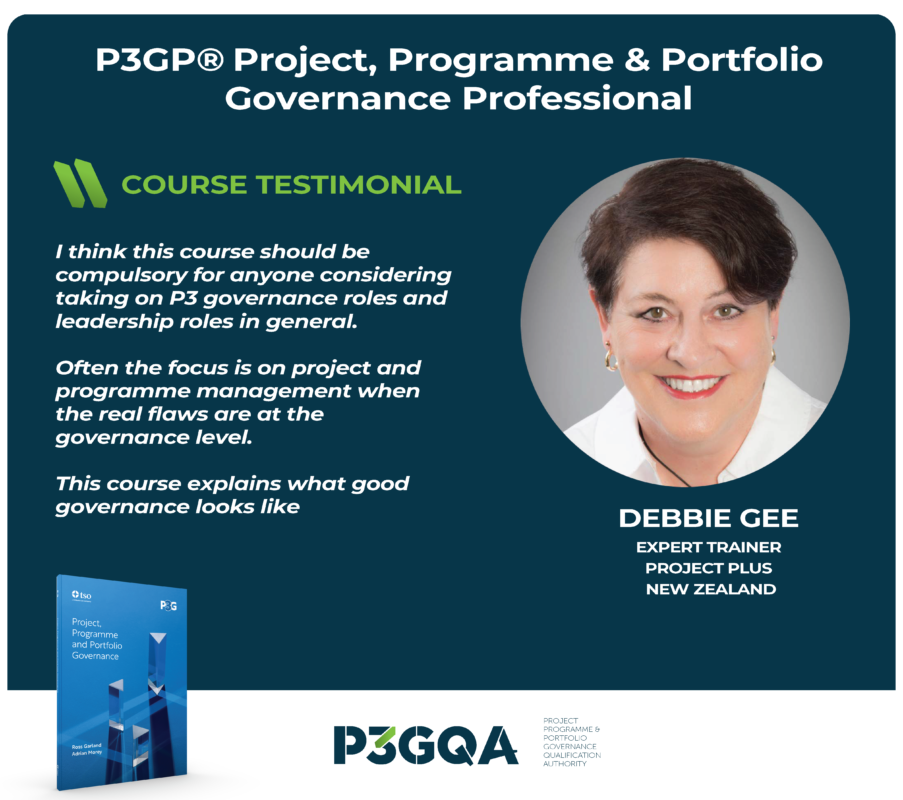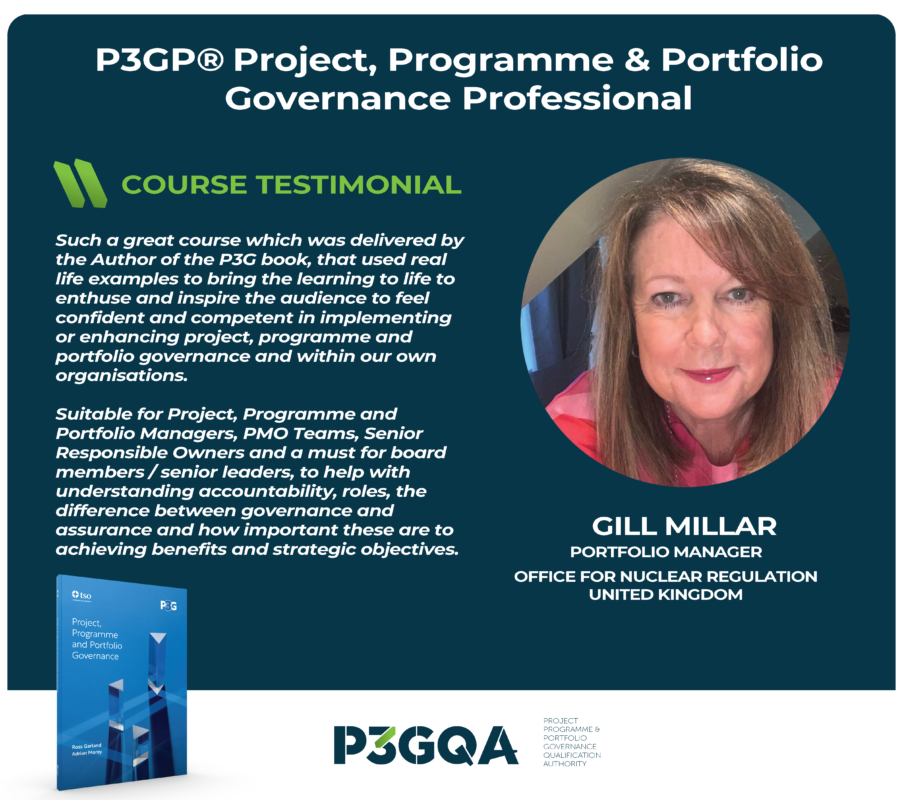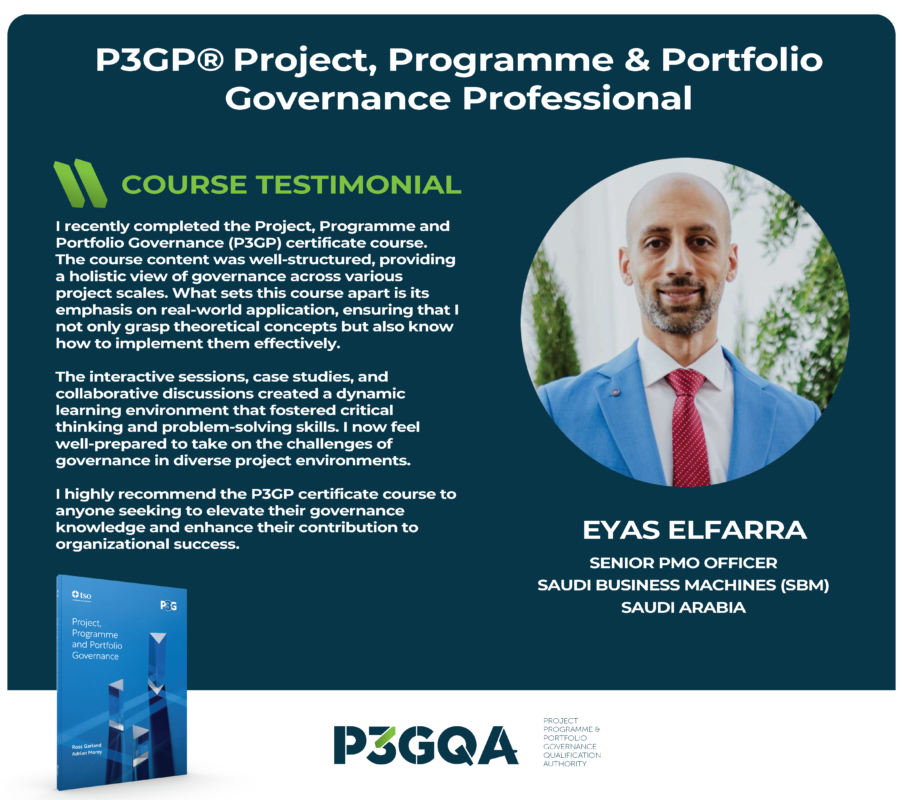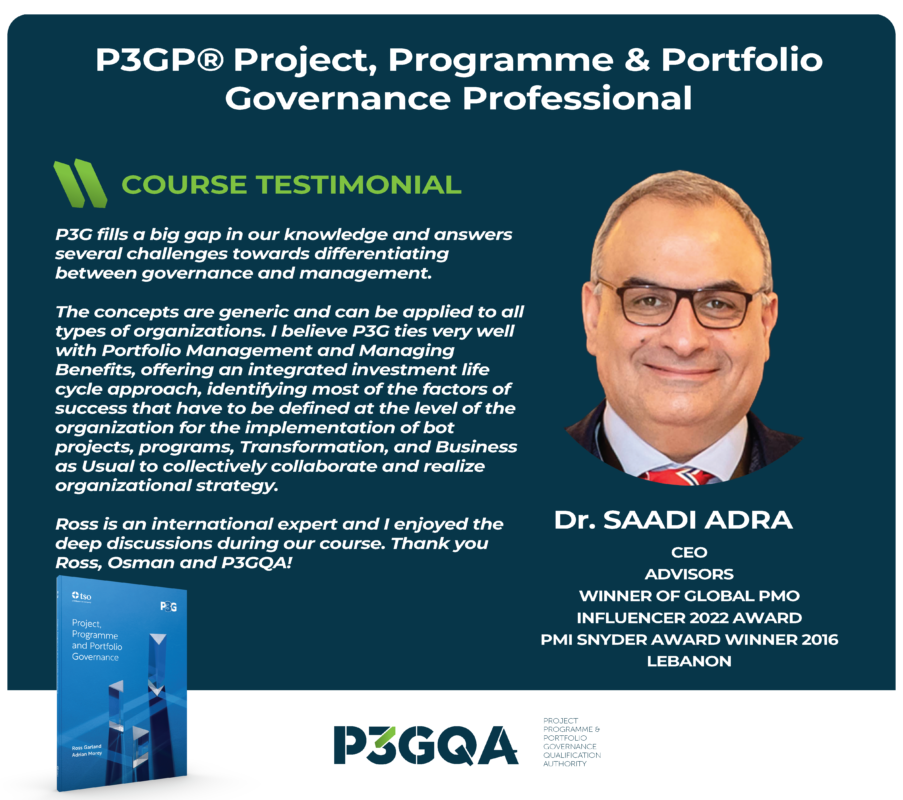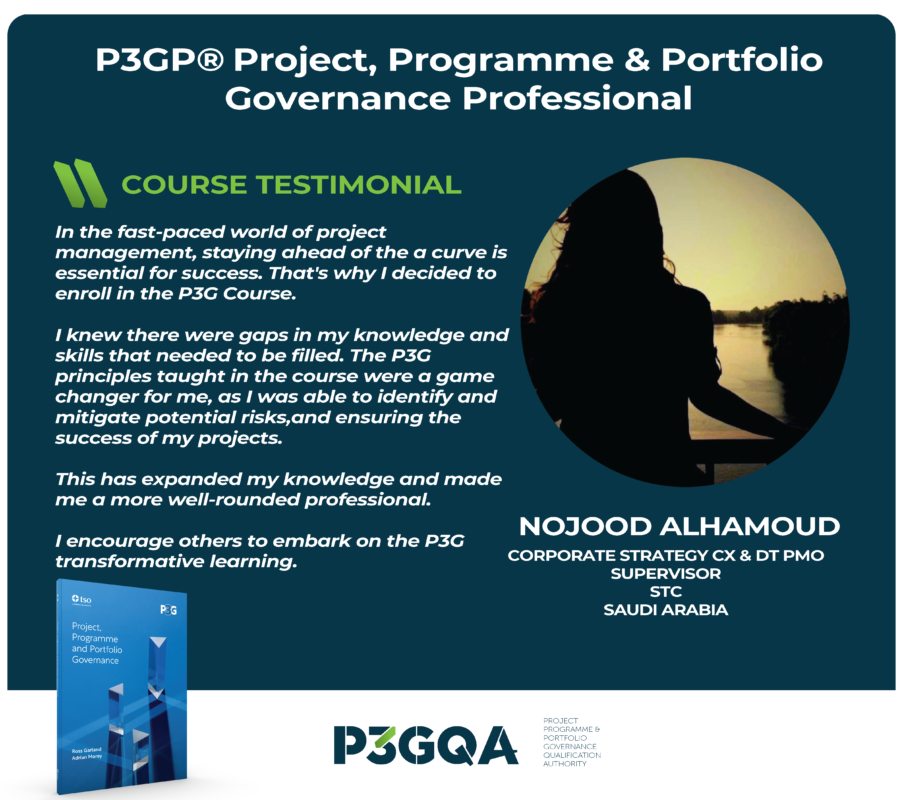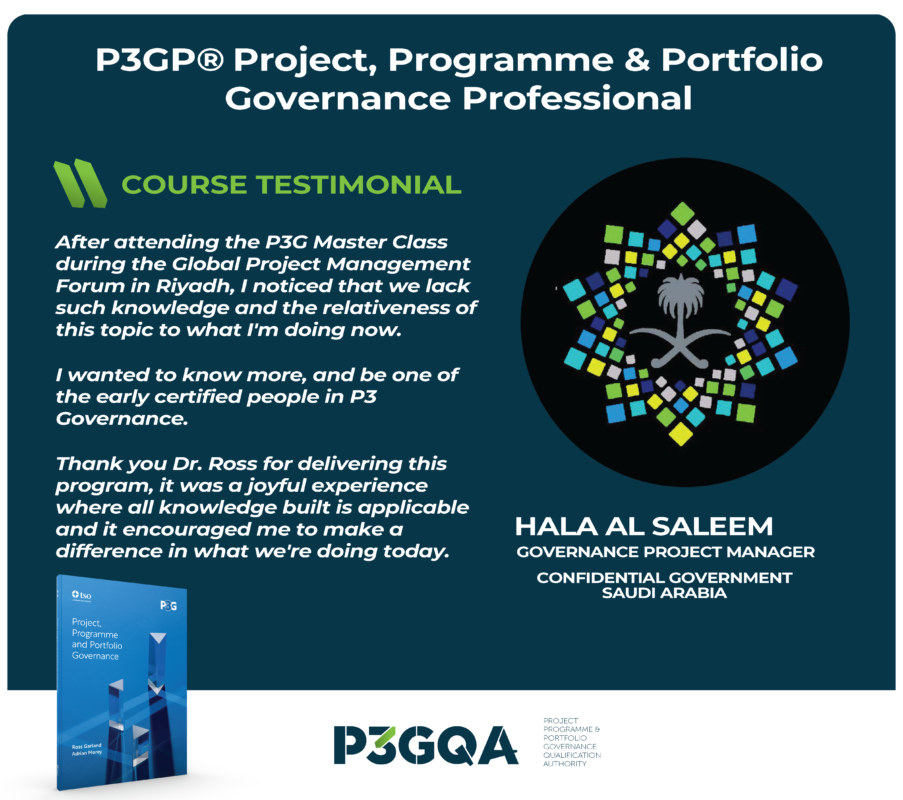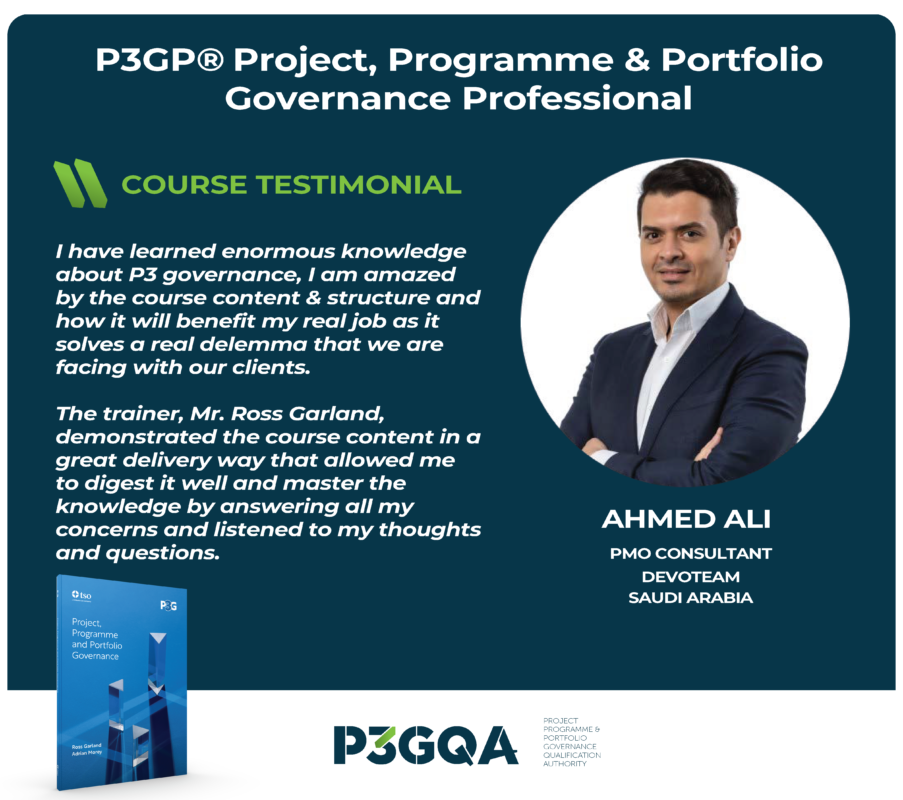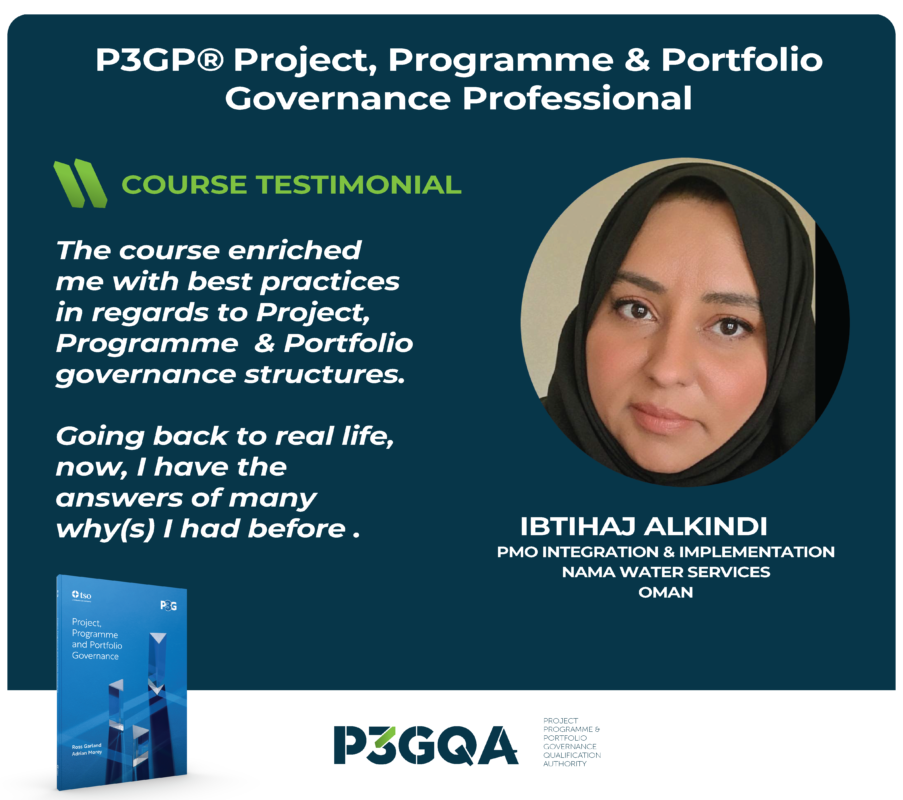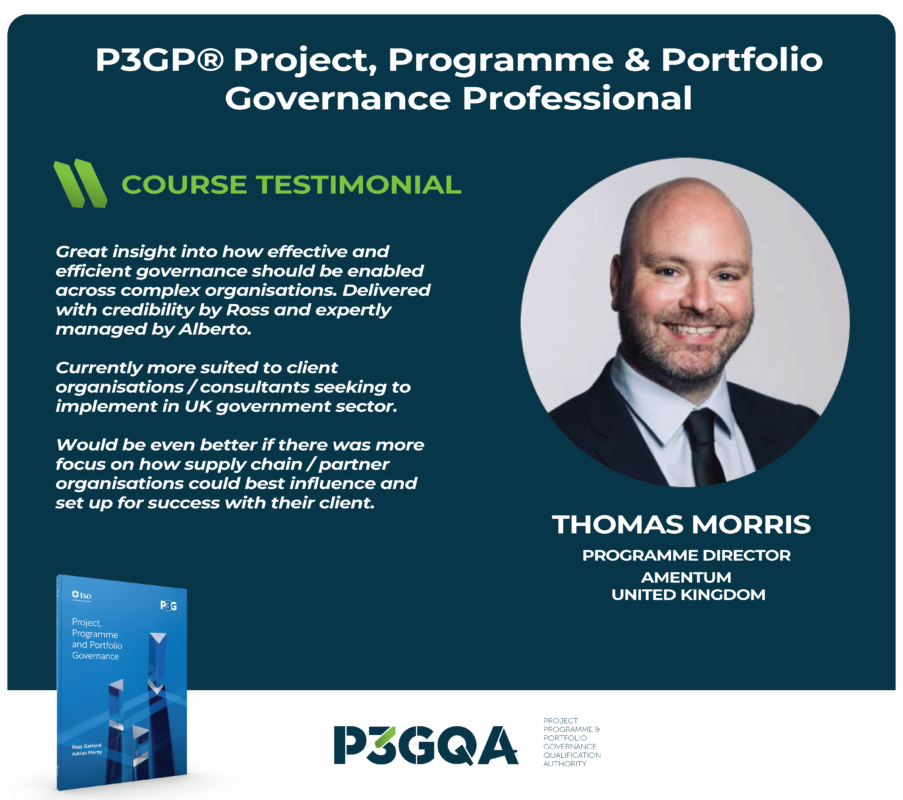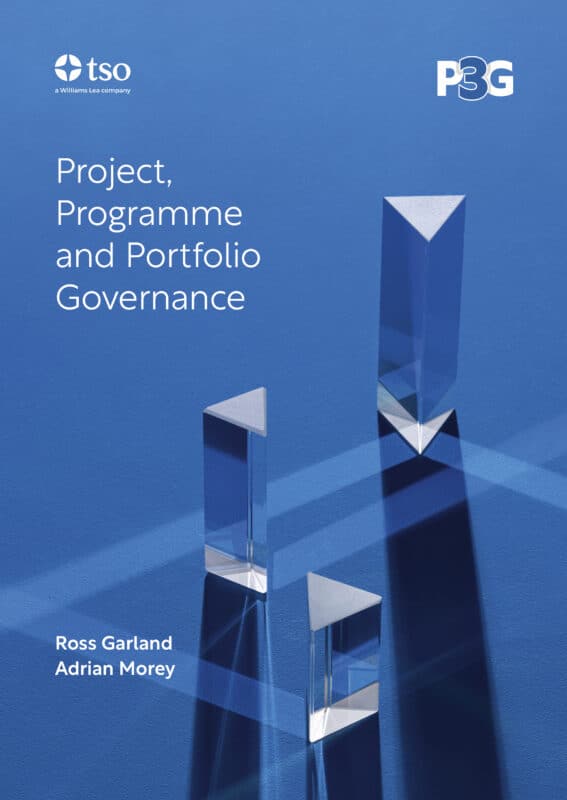Introduction and Purpose
The Project, Programme and Portfolio Governance Professional (P3GP®) certification & course provides the knowledge and understanding necessary to design, implement and operate effective and efficient governance arrangements for a project or programme, or your organization’s entire change portfolio.
It is based upon the book “Project Programme and Portfolio Governance – P3G” published by the TSO. It is applicable to projects, programmes and portfolios in all sectors including hard infrastructure, Information and Communications Technology (ICT), and business change in both the private and public sectors.
The course mirrors the book in being practical, pragmatic and adaptable to all P3 scenarios. The purpose of this syllabus is to provide a basis for accreditation of those seeking to acquire the theoretical foundations and practical skills of P3G.
It documents the course content and describes the requirements a candidate is expected to fulfil to achieve the qualification.

